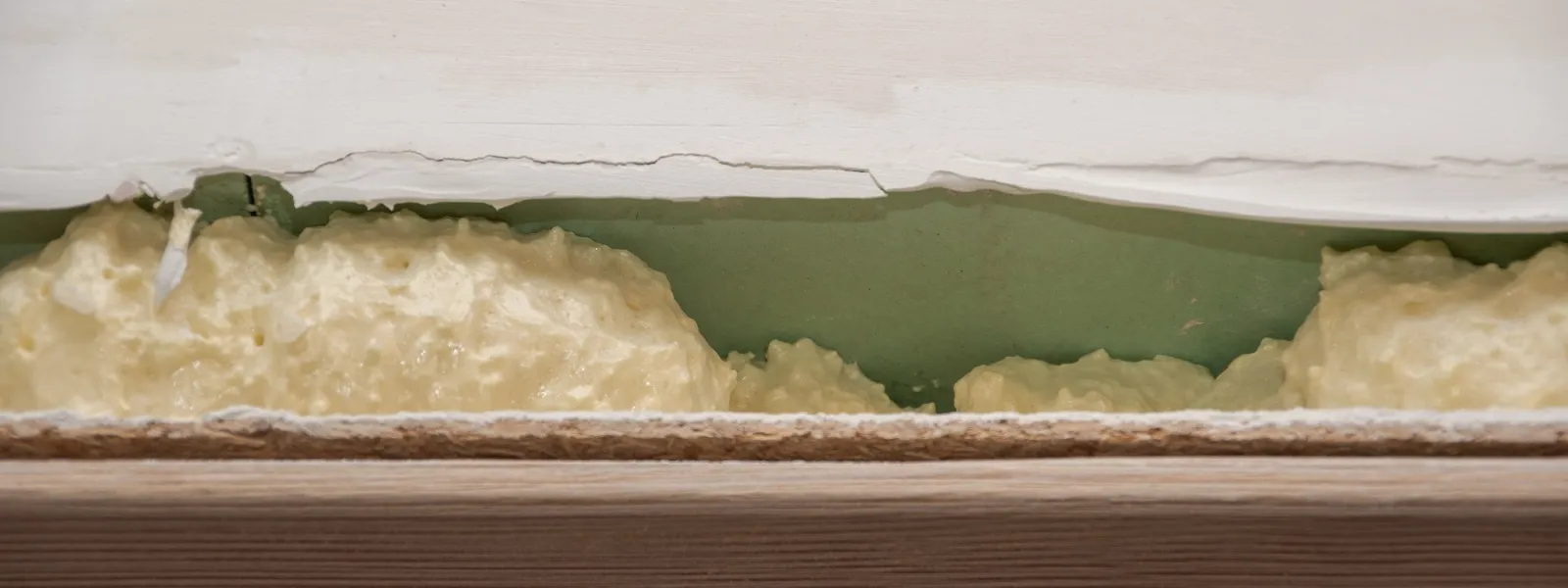Why We Say "No" to Foam Insulation
Posted on February 22, 2022
Most people understand the importance of insulation in a home. After all, it's a key component in your home's energy efficiency because it helps regulate the temperature in your household. In turn, quality insulation allows homeowners to conserve energy and save on their energy and fuel bills.
A lot of newer homes are insulated with spray
foam insulation because it is energy-efficient while increasing your
comfort levels. One way it does this is through attic insulation,
which keeps attics cool enough in the summer and warm enough in the winter to
maintain the rest of the home's temperature.
Additionally, owners of older homes are supplementing older insulation with foam insulation. Take, for example, a New Orleans homeowner who used foam insulation to make her historic home more energy-efficient. She sprayed foam insulation under the floor of her home to warm her entire house, improve its structural integrity, and create a moisture barrier.
While it's an effective solution for regulating home temperatures and cutting energy costs, homeowners should think twice before using spray foam insulation. There are plenty of pros and cons to using spray foam, but it isn't right for every home or climate. Be sure to explore your options before trusting spray foam as the only solution.
Is Spray Foam Insulation Really Worth It?
Spray foam can be a useful and effective update to a home if it is adequately maintained and monitored, but it's not the only insulation solution out there. In order to make an informed decision, a homeowner should know what it is and how it works before using it in their attic, under the floors, and elsewhere. The last thing a homeowner wants to do is add something that might not work in a few years.
When it comes to foam insulation, homeowners have two options: open-cell spray foam (50% polyurethane) and closed-cell foam (98% polyurethane). Open-cell foam can only be used in dark areas with zero sun or water. However, it can last for years without exposure to either element. Closed-cell spray foam, on the other hand, manages moisture and is better suited for walls and attics because it is practically impermeable.
Spray foam insulation can last for several years and prove to be a cost-effective insulation solution, but it does come with some risks. First, a spray foam job can quickly turn to disaster when the wrong type of foam (i.e., closed-cell) is used in an area where it may block the airflow. Second, spray foam applications are irreversible. If you have a line leak or another issue, you may have to dig through the spray foam to repair the damage. Also, foam makes it impossible to notice termite damage without an inspection.
What Are Foam Insulation Alternatives?
If foam insulation makes you nervous, there are viable alternatives to consider. Expo Home Improvement has plenty of options to meet your insulation needs. Expo Home Improvement offers the eShield™ radiant barrier, which reflects nearly 97% of all radiant heat transfer. This is important as radiant heat transfer is a leading cause of home energy waste.
Also, consider greener alternatives to foam insulation, such as cotton denim insulation, which is made from industrial scraps. Additionally, cellulose insulation is very versatile, as it can be used as a loose filler, a dense pack, or applied as a spray. While cellulose insulates less efficiently than spray foam, it's created with recycled paper and other green fibers, making it a safer option for you and your home. Plus, cellulose and cotton insulation are treated with borate-based flame retardants, which are safer for humans than the halogenated flame retardants used in foam insulation.
Whether to use foam insulation depends on the needs of your home and your region's climate. Still, while foam insulation is an effective way to keep your home warm or cool, there are cleaner and safer options to consider. Visit Expo Home Improvement to learn more about foam insulation alternatives and energy-efficient insulation options for your home today.
